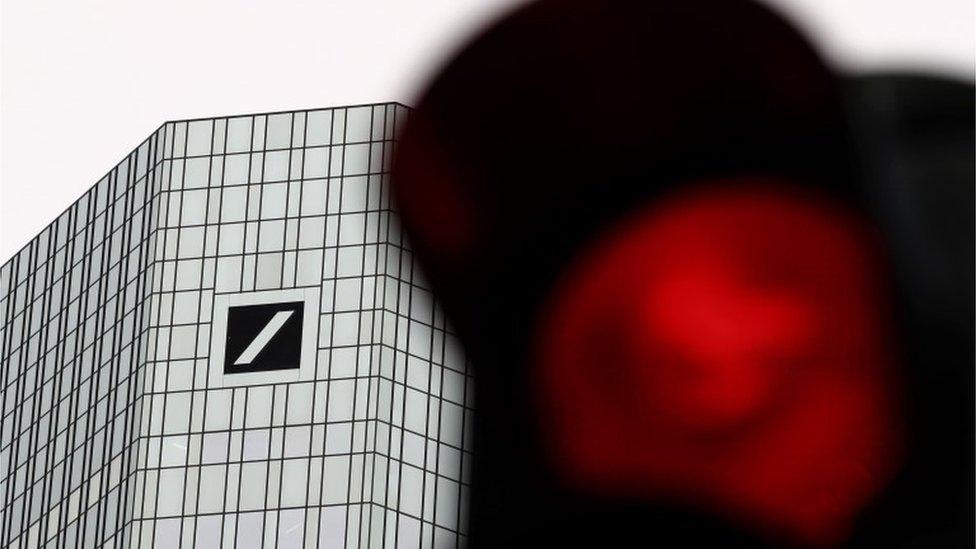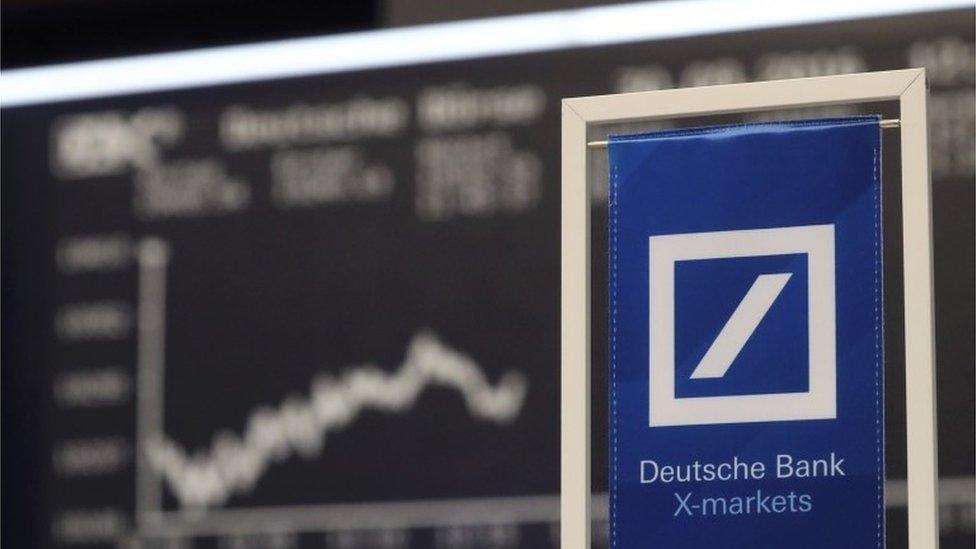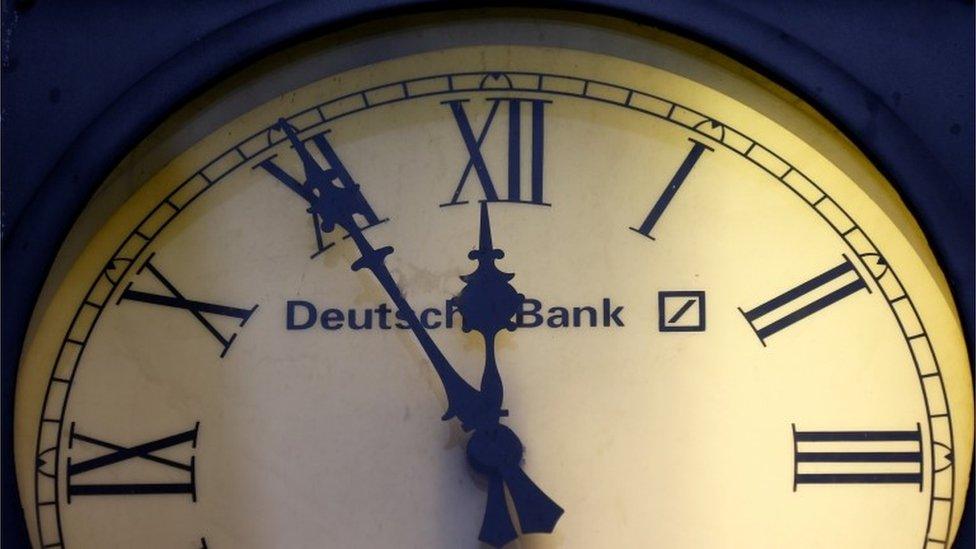Deutsche Bank: What's the risk?
- Published

Worries over Deutsche Bank's health are dragging down its share price, and in its wake, those of the rest of the world's banks.
Back in June, it was described as the world's most dangerous bank - by the International Monetary Fund, no less.
The latest trigger is the threat of a new fine for misdemeanours - a mammoth $14bn in the US for mis-selling mortgage-backed bonds before the financial crisis of 2008.
That is roughly the market value of the entire bank, so does this leave us on the brink of a new modern banking crisis, just eight years on from the last one?
How big?
Deutsche operates in 70 countries with 100,000 employees, but is shedding about 15% of its workforce, disposing of its retail bank, Postbank, and pulling out of other countries.
Deutsche Bank's assets are about €1.6tn. HSBC, the biggest non-Chinese bank in the world, has assets 50% greater than that, but Deutsche is still in, or near, the top 10 biggest global banks.
Deutsche's assets minus its liabilities, its theoretical value, are about €67bn. However, investors subtracting the fines the bank might have to pay, and adding in what they suspect are a raft of dodgy assets, think the truer figure is €14bn.

Should the world worry?
A share price at an all-time low suggests fear about the business. But there's also some game-playing going on. Certain hedge funds let it be known they had withdrawn investments from Deutsche Bank overnight, giving the share price the jitters and providing a great opportunity for short-sellers to make a profit.
The bank sought to soothe investors' feathers with its statement saying its clients "are amongst the world's most sophisticated investors... the vast majority of them have a full understanding of our stable financial position".
Since the banking crisis, systems have been put in place to ensure that investors in a bank stump up before governments do, and the bank can - as it is doing - sell assets to raise money. It can also sell shares in itself.
It could take help from the German government, but there are strict rules about state aid and that would be politically very unpopular. And the German government has denied it was putting together a rescue plan.
It is, though, certainly in the "too big to fail" camp. One leading banking analyst says that if Deutsche were allowed to go, it would make the demise of Lehman Brothers and the after-effects of that look like a mere ripple.
And some say the US will not want to impose the threatened mammoth fine on the business, as they fear the risks of Deutsche going under would threaten their own banks.

Is this a wake-up call?
In the wake of the 2008 banking crisis, major US and UK banks were forced to sort themselves out and beef up their capital buffers - whether by selling assets, hiving off businesses good and bad, or selling new shares in themselves.
Europe's banks have not been through that to such a severe extent, although they have carried out asset sales and issued new share issues. Indeed, Deutsche Bank itself has had three massive re-capitalisations since the crisis.
There are reforms within the eurozone that have been going on since 2009, but these are slow, largely curbs on how much risk banks can take on.
Any impetus for faster reform is likely to hinge on whether Deutsche Bank's woes are under- or overstated.